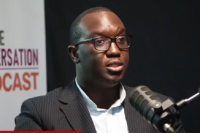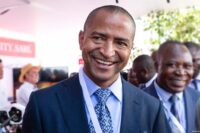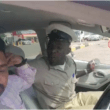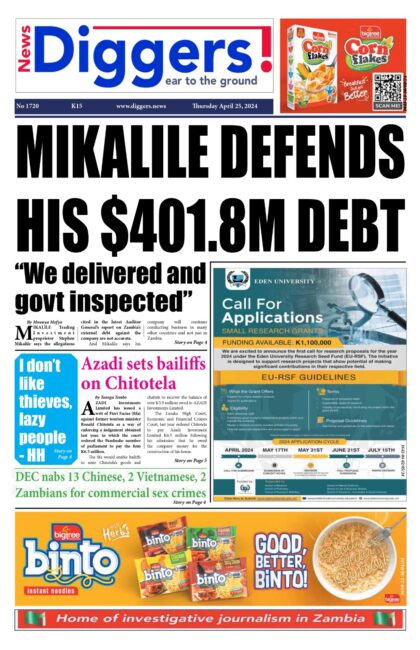Two weeks ago, we published an opinion detailing the corruption in the Zambia Police Traffic department. Little did we know that we were actually prophetically speaking about a scandal that would vindicate our critical position against the men and women in uniform.
On Thursday last week, a zealous Lusaka Province Minister Bowman Lusambo toured some public health facilities in Matero Township. On his way back, he found traffic police officers had mounted an illegal roadblock. After realizing that there was a clear case of corruption, Lusambo ambushed the officers and exposed the theft. He went further to parade them in front of media cameras and made all the political mileage he could from the incident.
Probably unknown to him, in that act, the minister successfully rescued his criminal government from the jaws of an angry public that was fuming over the extra charge on WhatsApp and other Internet based calls.
What followed immediately after was a social media debate about the professional conduct of the minister himself against the police officers. That is how the Internet tax outrage took a break as netizens were thrown into the “was Lusambo wrong or right” debate.
Without the aim of helping the PF to divert public attention from the much more serious governance scandal, we would like to reiterate our opinion on corruption in the Zambia Police Traffic department.
In our recent prophetic opinion, we described exactly what Minister Lusambo found on Mungwi road – police officers reaping off erring motorists in broad daylight for their own survival. That is how a majority of our police officers survive because their little salaries cannot sustain their families, especially in cities like Lusaka.
In our view, the institutions that are tasked to curb corruption in the Traffic Department are not addressing the real problem. They are trying to force behavioural change among police officers, forgetting that motorists are more willing to pay a bribe than pay for the offence committed, because the charges are too exorbitant.
Take “driving uninsured motor vehicle” for example. While it is indisputable that a car insurance disc on the windshield does not protect the life of neither the driver nor the passenger of a vehicle, traffic police are obliged to charge you as much as K450 for failure to display insurance cover. Failure to fasten seatbelt is K300 per passenger; touching your cellphone while driving is K450 etc.
How many motorists can afford to pay for these exorbitant traffic offences? That is why it is always cheaper to pay a bribe than to pay for the offence. That is where the problem is. So if our government wants to end corruption in this sector, let them compel the Road Transport and Safety Agency (RTSA) to be reasonable.
You cannot charge a motorist K300 because her car is missing a reflector, which is worth K10 only. That is encouraging corruption. If such an offence would attract a K15 fine, people would prefer paying admission of guilt, than paying a K50 bribe to a traffic officer. That is the only way.
In fact, in Malawi, there are several traffic offences where officers are encouraged to exercise ‘mechanical’ leniency. What this means is that if your car has a broken headlamp or the tyres are near bursting, the officer will impound the car and force you to go and buy the needed replacement so that you fix the car in their presence. After that, they let you go without necessarily paying anything to the officer or the state.
Now back to last week’s traffic scandal. While the development was not new to us because we see it on the roads all the time, our take on the issue is that the minister displayed the highest level hypocrisy. We were shocked to hear him say that catching the officers proved that politicians are not corrupt but are here to serve the people.
Mr Lusambo thinks we have forgotten that in March this year, he caught himself in a corruption conversation with some Chinese. This is the same government official who accidentally recorded himself assuring a contractor that he would use his ministerial flag to make sure the Chinese get the deal.
Whatever that deal was, we know that it was not as little as the K2,000 which the traffic officers collected from motorists to go and buy kapenta. Like former Attorney General Musa Mwenye stated, grand corruption is happening in the top government offices, but we are targeting only the weak and vulnerable culprits.
Anyway, we will still applaud the Lusaka Province Minister, even though his corruption stunt was nothing more than a distractive nuisance. That is the usefulness of useless people.












